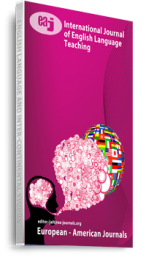The major goal of the Universal Basic Education (UBE) curriculum is to realign all Primary and Junior Secondary School curriculum to meet the key target of the UBE programme. Proficiency in the use of English language is the key to achieving this goal. However, it has been observed that many individuals, after spending a good number of years in primary and secondary school, still have problem in their use of English; especially the spoken form. Consequently, this study set out to find the reason for such incompetence among students. Four (4) research questions and four (4) hypotheses aided this study. A sample of eighty (80) pupils and eighty (80) students from primary and Junior Secondary Schools and forty (40) teachers from six (6) public schools (one from each of the six (6) states) in the South-South geo-political zones in Nigeria were used. Two questionnaires called Teachers’ Questionnaire and Students’ Competence Questionnaire were used to obtain data for the study. Validity and reliability of the instruments were carried out and data was analyzed using the Statistical Package for Social Science (SPSS) version 25. Descriptive Statistics and Pearson Product Moment Correlation was used to answer the research questions, while regression analysis was used to test the hypotheses. The findings indicate that the curriculum is well planned with the four language skills in consideration, however there is inadequate funds and infrastructures in schools. The study recommended that there should be availability of funds, infrastructures and instructional materials to aid effective teaching and learning of English language. Also, learners should consider and employ the appropriate teaching methods and endeavor to incorporate the four language skills in their teaching content in the classroom.
Keywords: Curriculum, English Language, Universal Basic Education

